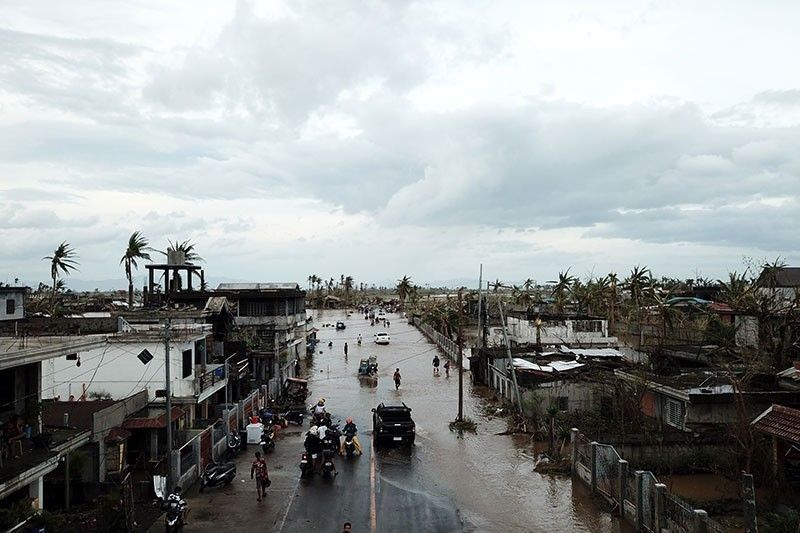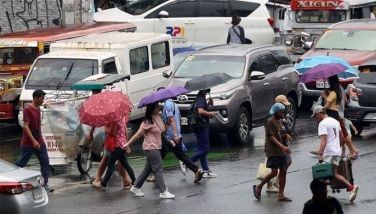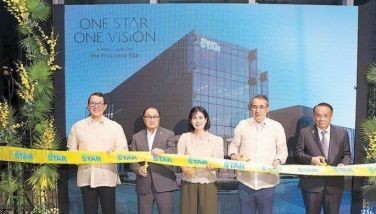Climate crisis driving Filipinos to relocate — UN migration report

MANILA, Philippines — Migration is one of strategies employed by Filipinos to cope with the impacts of the climate crisis, a report of the United Nations migration agency found.
A report from the International Organization for Migration Philippines identified farmers and fisherfolk, women, elderly, and the urban poor as the most vulnerable to and severely impacted by the effects of the climate crisis such as extreme weather events, increase in temperatures, sea level rise, heavy rainfall and drought.
In response to the increasing climate risks, Filipinos rely on voluntary adaptive strategies such as permanent and circular migration as well as involuntary strategies such as distress migration and systemic relocation.
“The relationship between the climate emergency and migration is mediated by the quality of one’s livelihood as well as access to security, peace and stability,” the report read.
“Specifically, the more that the climate emergency affects the quality of livelihood and the quality of peace and stability in a certain place, the more that people are driven to undertake migration as an adaptive strategy,” it added.
In a release, the Climate Change Commission said it is committed to integrate migration as a key theme in policy discourse, and to develop policies and programs centered on migrants.
Adaptive strategies
The report reviewed existing evidence on migration and climate change in the Philippines.
It also explored the state of migration in the context of climate crisis in the cities of Manila, Malabon, Iloilo and Davao as well as Samar province through interviews with community members and local government officials. The areas were selected due to their high exposure and vulnerability to climate impacts.
The study found that permanent and circular migrants or those who undertake migration as a voluntary adaptive strategy “are assumed to have high adaptive capacities, and have a high propensity to extend support to communities they left.”
Permanent migrants refer to those who move to another place within the country or abroad with the intention of starting a new life in their destinations, while circular migrants are those who move temporarily to another place to seek employment. Often, circular migrants come from the countryside where crop yield or fish catch is low because of changing weather patterns.
On the other hand, informal settlers, coastal dwellers, and those who come from low-income households—or distress and relocated migrants—“have limited power in making decisions and undertaking actions to address the negative impacts of the climate emergency.”
The report also highlighted that while relocation intends to remove people from danger zones, relocation projects tend to overlook the need for access to livelihood and basic services. As a result, some people refuse to relocate.
“When done in a contextually grounded manner, and with strong community engagement, planned relocation projects can be a pathway towards managing climate vulnerabilities, and can also evolve to become voluntary adaptive strategy,” it read.
As an archipelagic nation in the Pacific, the Philippines ranked fourth in the list of countries most impacted by climate-related catastrophes in the past 20 years, according to the Global Climate Risk Index.
The Philippines is particularly exposed to the threats of tropical cyclones, averaging 20 annually.
The climate crisis is exacerbating the country’s exposure to more frequent and extreme weather changes, rising temperatures, heavier rainfall and sea level rise.
- Latest
- Trending
































